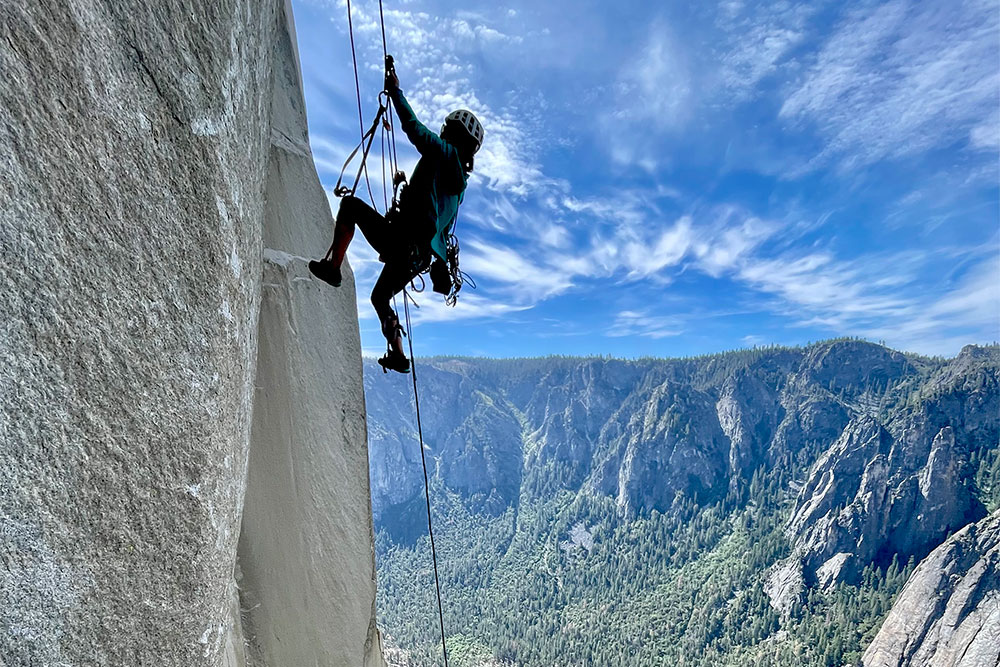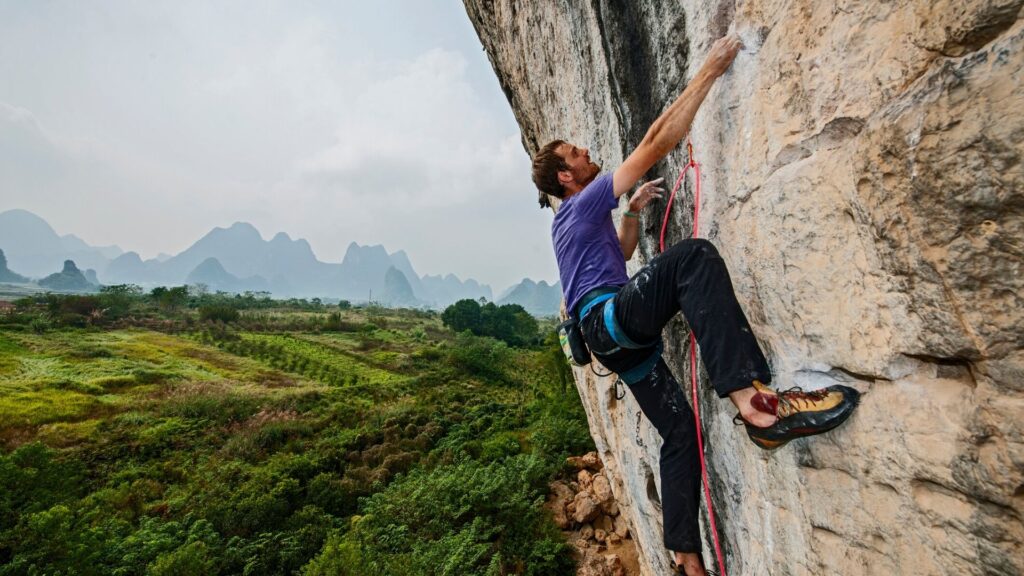To climb rocks, is a sport that involves ascending steep or vertical rock faces using various techniques such as grip, balance, and strength. It can be done both indoors on artificial walls or outdoors on natural rock formations.
Rock climbing can be divided into several different styles, including bouldering, sport climbing, traditional climbing, and multi-pitch climbing. Bouldering involves climbing short routes that don’t require the use of ropes, typically on boulders or low rock formations. Sport climbing involves climbing routes that are pre-equipped with bolts for protection, while traditional climbing involves placing your own protective gear as you climb. Multi-pitch climbing involves ascending routes that require multiple rope lengths to complete.
Rock climbing requires a combination of physical and mental skills, including strength, endurance, balance, problem-solving, and risk management. It is also a social sport that can be enjoyed with friends or in a group setting.
Safety is paramount in rock climbing, and climbers must always use appropriate gear and techniques to minimize the risk of injury or accidents. This includes wearing a helmet, using a rope and harness, and understanding how to properly use protective gear.
Overall, rock climbing is a challenging and rewarding sport that can be enjoyed by people of all ages and abilities.

Essential Tips for Rock Climbing
If you’re new to rock climbing, here are some essential tips to help you get started:
Start with indoor climbing:
Before attempting outdoor climbing, consider starting with indoor climbing first. This will allow you to learn the basics in a controlled environment, where you can practice on artificial walls with trained instructors.
Invest in good gear:
Climbing requires specialized equipment, including climbing shoes, a harness, a helmet, and a rope. Make sure to invest in good quality gear that fits properly and is appropriate for your level of climbing.
Learn the basics:
Before attempting any climb, make sure to learn the basics of climbing technique, such as how to grip and balance, how to use your feet, and how to move efficiently up the wall. A qualified climbing instructor can help teach you these basics.
Practice safety:
Safety is paramount in climbing. Always wear a helmet, use proper equipment, and follow proper techniques for using ropes and protective gear.
Start with easy climbs:
When starting out, it’s important to begin with easy climbs that match your level of ability. Gradually work your way up to more challenging climbs as you improve.
Take breaks:
Climbing can be physically demanding, so it’s important to take regular breaks and rest your muscles. This will help prevent injury and ensure that you have the energy to complete your climb.
Climb with a partner:
Climbing with a partner is not only more fun, but it’s also safer. A partner can help spot you, provide encouragement, and assist you in case of a fall or emergency. Make sure to communicate effectively with your partner and establish clear expectations and safety protocols before beginning your climb.
Have fun:
Above all, climbing is a fun and rewarding sport. Enjoy the experience, and don’t be too hard on yourself if you don’t succeed on your first attempts. Climbing takes practice, persistence, and patience.

Why you should climb rocks
To climb rocks offers a unique combination of physical and mental challenges that can be incredibly rewarding. Here are some reasons why people enjoy rock climbing:
Physical fitness:
To climb rocks is a great way to improve your physical fitness. It requires strength, endurance, and flexibility, and can be a full-body workout. Climbing also provides cardiovascular benefits and can help improve your balance and coordination.
Mental challenge:
Climbing requires not only physical strength, but also mental focus and problem-solving skills. It requires you to assess the route, plan your moves, and make quick decisions. Climbing can also help improve your confidence, self-awareness, and ability to handle stress.
Connection to nature:
Outdoor rock climbing allows you to connect with nature and experience beautiful landscapes from a unique perspective. It can be a great way to escape the stresses of daily life and spend time in the great outdoors.
Social activity:
Climbing is a social sport that can be enjoyed with friends or in a group setting. It provides an opportunity to meet new people, share experiences, and work together to achieve a common goal.
Sense of accomplishment:
Climbing can provide a great sense of accomplishment and satisfaction when you reach the top of a climb. It allows you to push your limits and achieve goals that may have once seemed impossible.
Variety:
Rock climbing offers a wide variety of experiences, from climbing on indoor walls to scaling towering peaks in the great outdoors. There are also different styles of climbing, such as bouldering, sport climbing, traditional climbing, and multi-pitch climbing, which can offer different challenges and experiences.
Environmental awareness:
Climbing often involves spending time in natural environments, which can help raise awareness about environmental issues and the need to protect our planet. Many climbers are passionate about preserving natural landscapes and promoting sustainable practices.
Life skills:
Climbing can teach valuable life skills, such as communication, problem-solving, risk management, and goal-setting. These skills can be applied to other areas of life, such as work, relationships, and personal development.
Overall, rock climbing is a challenging and rewarding sport that offers many physical, mental, and emotional benefits.


